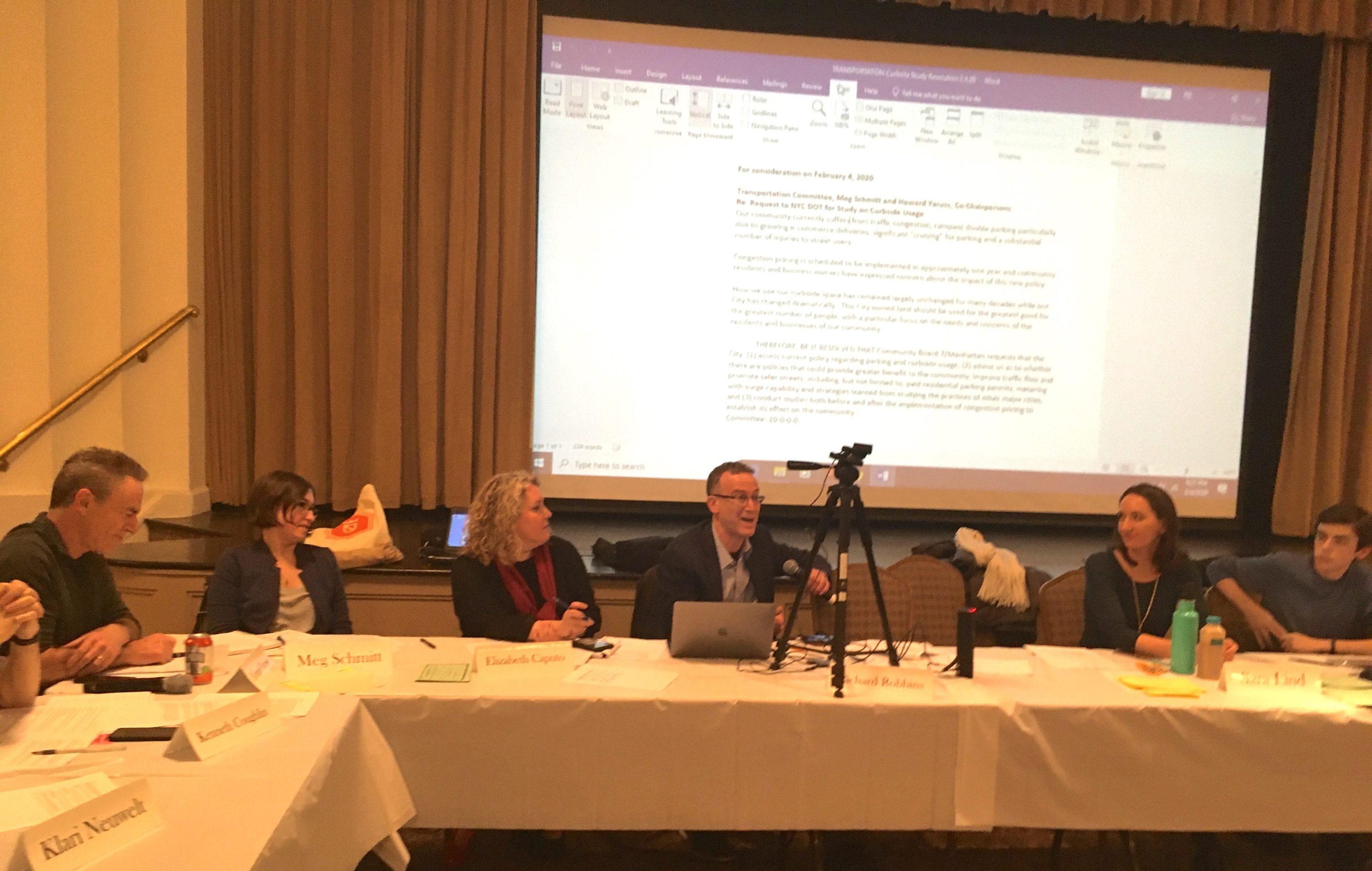It's the first step to breaking the car culture.
The resolution approved by Upper West Side’s Community Board 7 on Tuesday night was an anodyne request for a city study of "parking and curbside usage,” but it was also, in fact, a bombshell call to action against car owners whose vehicles have ruined the city.
From the City Council Speaker to a city council candidate, no one underestimated the importance of the board's demand that the city study policies "that could provide greater benefit to the community, improve traffic flow and promote safer streets" — strategies that obviously include the end of free on-street car storage.
The resolution is “a significant marker on the long road to breaking car culture,” said congestion-pricing expert Charles Komanoff, adding that the resolution's greatest significance is that it represented a rare occasion when “a full community board has formally requested a city study to optimize and potentially overhaul curbside use, including pricing.”
In other words, a community board is now on record demanding that the city fix all of the conditions that everyone agrees are bad: congestion, unsafe roads, poor transit, garbage inches from already crammed pedestrians and, in general, unlivable streets.
"This resolution is the first step in helping people envision other possibilities,” said Sara Lind, a CB7 member who is running for City Council. “Now it's up to DOT to do their job and come up with solutions for how we manage our curbside space."
City Council Speaker Corey Johnson — who is running for mayor on a "break the car culture" platform — also saw the deeper implications of a resolution that merely sought a "study" of the curb.
“I’m grateful that CB7 is taking a major step forward in a citywide conversation on how we share our streets,” he said. “The question of how we best allocate our street space is an important one, and I look forward to reading the results of this study, which has the potential to help us craft better policy,”

The main power behind the anodyne call for study is that everyone agrees that the city is degrading, added Council Member Mark Levine, whose district is just north of the Upper West Side.
“The status quo is not working for anybody, including drivers,” he said, citing the negative impact of e-commerce deliveries, suburban drivers parking in residential neighborhoods, congestion, carnage, and climate-changing, health-affecting tailpipe emissions. “We need to figure this out now, with congestion pricing about to be implemented. The study will make the neighborhood safer, healthier and more livable for everybody."
What will the resulting study show? At the very least, it will reveal that "there aren't enough loading zones" to enable delivery truckers to drop off their packages without blocking roadways, said Rachel Weinberger, the senior fellow for transportation at the Regional Plan Association. And any study worth its salt would likely recommend not adding more parking because "when it's easier to park, more people will decide ... it is now a good time to get a car.”
Some pols, namely Comptroller Scott Stringer, another mayoral candidate; and Upper West Side Council Member Helen Rosenthal, declined to immediately touch the third rail of the tony neighborhood, namely a small portion's core belief that parking should be free.
But Lind said the resolution shows that it's time to pull the plug on that status quo — and the study will start that process.
"Working on this resolution for almost a year, we've seen just how strongly people feel about their 'right' to park on the street for free,” she said. “Changing that culture is going to take a lot of time and effort."
Effort, she suggested, that will be worth it. If not, at least, everyone will know who to blame.






